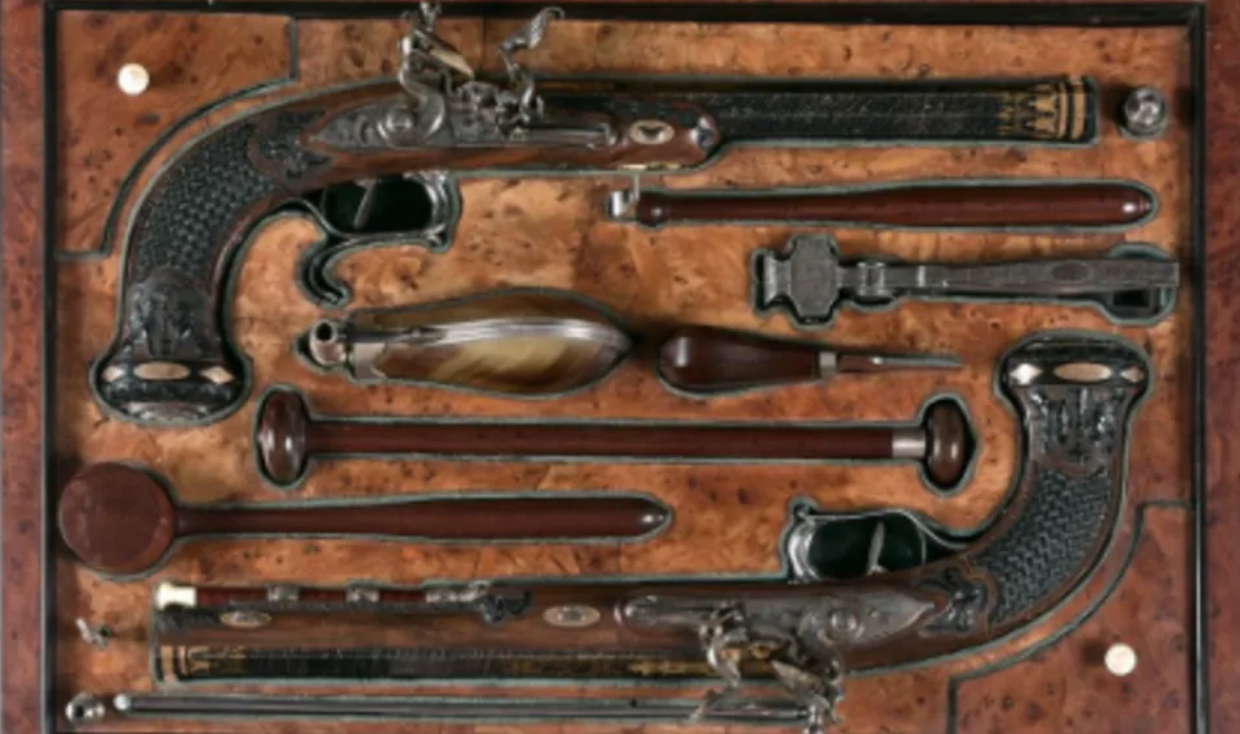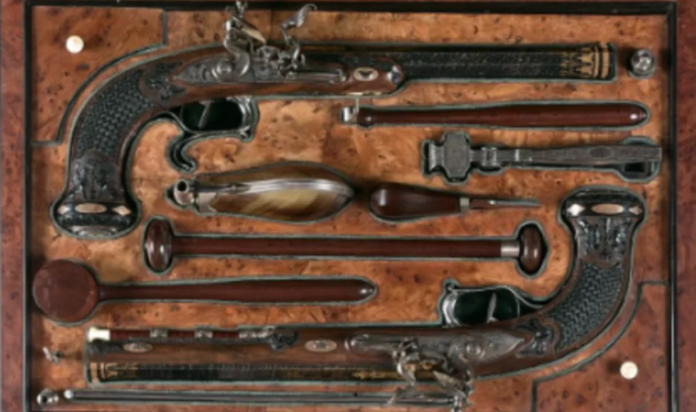Two pistols owned by the French emperor Napoleon Bonaparte, with which he once intended to kill himself, have been sold at auction for €1.69m (GH₵ 28.2).
The weapons, which were created by the Paris gunmaker Louis-Marin Gosset, had been expected to fetch between €1.2m and €1.5m.
They were sold at the Osenat auction house on Sunday – next to the Fontainebleau palace, where Napoleon tried to take his own life following his abdication in 1814.
The pistols’ sale comes after France’s culture ministry recently classified them as national treasures and banned their export.
This means the French government now has 30 months to make a purchase offer to the new owner, who has not been named. It also means the pistols can only leave France temporarily.
The guns are inlaid with gold and silver, and feature an engraved image of Napoleon himself in profile.
He was said to have wanted to use them to kill himself on the night of 12 April 1814 after the defeat of his army by foreign forces meant he had to give up power.
However, his grand squire Armand de Caulaincourt removed the powder from the guns and Napoleon instead took poison but survived.
He later gave the pistols to Caulaincourt, who in turn passed them to his descendants.

Napoleon later gave the pistols to his squire Armand de Caulaincourt, who passed them to his descendants
Also included in the sale were the pistols’ original box and various accessories, including a powder horn and various powder tamping rods.
Auctioneer Jean-Pierre Osenat said that the “image of Napoleon at his lowest point” was being sold alongside the objects.
Napoleon memorabilia is highly sought after. One of the tricorne hats that became a part of his brand sold for €1.9m in November.
The historic leader returned to power in 1815 following his exile to the Mediterranean island of Elba but went on to be defeated at the Battle of Waterloo.
He died in 1821 after his second banishment – this time to the island of St Helena in the South Atlantic.
MORE:

